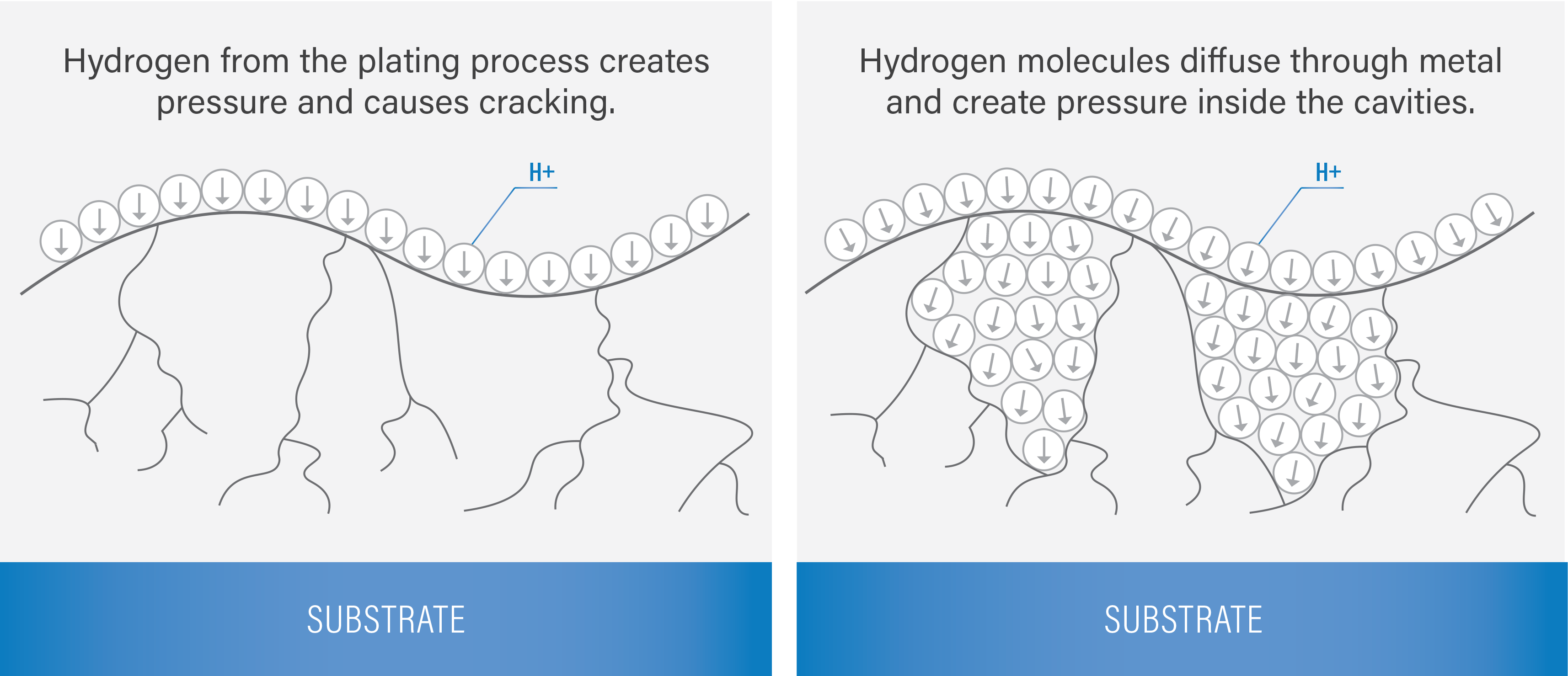
Coatings Technology Blog
Take Early Action to Avoid Hydrogen Embrittlement

If your part is made from a high-strength metal or alloy and has undergone proper finishing processes, it’s easy to be confident that it will be immune to damage when used in the field. However, it’s possible the very measures you take to ensure a reliable product may actually leave it vulnerable to an insidious and not-well-understood threat: hydrogen embrittlement.
When a hard base metal is exposed to hydrogen, it can lose ductility, leading to cracks that can hinder load bearing capacity and possibly cause your part to fail prematurely. The most susceptible materials are steels with hardness above Rc 40, as well as vanadium, nickel and titanium. Common finishing methods are also to blame: plating and cleaning processes that involve acidic materials can impart hydrogen into the base metal. Other factors include applied stresses and the environment.
Fortunately manufacturers can take measures to avoid hydrogen embrittlement. Magnaplate offers a variety of capabilities to help you solve the issue:
- Hydrogen Embrittlement Baking. If a finishing treatment like plating has diffused hydrogen into your base material, the hydrogen can be baked out of the part within hours of the process that caused the incursion using an industrial oven at a specific temperature over a specific time as determined by the steel’s hardness. Magnaplate typically follows the specifications established by the Aerospace Materials Division of SAE International (AMS 2759/9E).
- Testing. Using results from the American Society for Testing and Materials’ (ASTM) F519-18 Standard Test Method, in which a notched tensile specimen must pass a sustained load test (SLT) conducted for over 200 hours at a specific tension, we can determine whether a finishing process may cause hydrogen embrittlement.
- Engineered Coatings. When combined with our proprietary cleaning processes, certain Magnaplate coatings can prevent hydrogen absorption. For example, Canadize® — created to protect titanium and its alloys — provides an augmented surface hardness of Rc 45, resulting in high fatigue strength and fracture toughness.
Plan Ahead With a Coating Specialist
When it comes to hydrogen embrittlement, prevention is possible. Be sure to inform your coating vendor of the base material and its hardness in the early stages of the design process. Magnaplate has the expertise and capability to recommend changes to your base material, find alternative cleaning options or suggest an appropriate coating to protect your surface from hydrogen so your parts can maintain their ductility for a long time.
For more information, download our white paper.